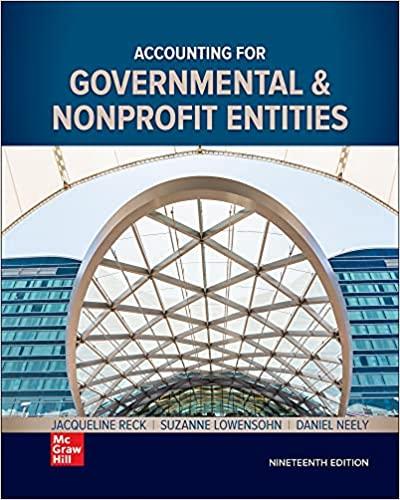Question
Question 1: Which of the following is the primary source of revenue for a merchandising business? the production of products from raw materials the purchase
Question 1:
Which of the following is the primary source of revenue for a merchandising business?
the production of products from raw materials
the purchase and resale of finished products
providing intangilble goods and services
the sale of raw materials to manufacturing firms
Question 2:
Which of the following represents the components of the income statement for a service business?
Sales Revenue - Cost of Goods Manufactured = gross profit
Service Revenue - Cost of Goods Purchased = gross profit
Sales Revenue - Cost of Goods Sold = gross profit
Service Revenue - Operating Expenses = operating income
Question 3:
Which of the following represents the components of the income statement for a merchandising business?
Service Revenue - Operating Expenses = gross profit
Sales Revenue - Cost of Goods Manufactured = gross profit
Service Revenue - Cost of Goods Purchased = gross profit
Sales Revenue - Cost of Goods Sold = gross profit
Question 4:
Which of the following isnotconsidereda product cost?
direct materials
indirect materials
direct labor
selling expense
Question 5:
Variable costs are expenses that _________________________.
decrease in a per-unit basis as activity level increases
remain constant on a per-unit basis and remain constant in total regardless of activity level
remain constant in total regardless of the activity level within a relevant range
remain constant on a per-unit basis but change in total based on activity level
Question 6:
Which of the following would not be classified as manufacturing overhead?
direct labor
indirect materials
indirect labor
property taxes on the factory
Question 7:
Which of the following statements is true regarding average fixed costs?
Average fixed costs per unit cannot be determined.
Average fixed costs per unit rise as the level of activity rises.
Average fixed costs per unit fall as the level of activity rises.
Average fixed costs per unit remain fixed regardless of activity.
__________________________________________________________________
Question 8:
A company's product sells for $150 and has variable costs of $60 associated with the product. What is its contribution margin per unit?
$150
$40
$60
$90
Question 9:
A company's contribution margin per unit is $25. If the companyincreases its activity level from 200 units to 350 units, how much will its total contributionmargin increase?
$8,750
$3,750
$1,250
$5,000
Question 10:
If a company has fixed costs of $6,000 per month and their product that sells for $200 has a contribution margin ratio of 30%, how many units must they sell in order to break even?
100
2,000
180
200
Question 11:
A company wants to earn an income of $60,000 after taxes. If the tax rate is 32%, what must the company's pre-tax income be in order to have $60,000 after-taxes?
$79,200
$143,000
$19,200
$88,235
Question 12:
When sales price increases and all other variables are heldconstant, the break-even point will ____________________.
produce a lower contribution margin
decrease
remain unchanged
increase
Question 13:
When variable costs increase and all other variables remain unchanged, the break-even point will ___________________.
increase
decrease
remain unchanged
produce a lower contribution margin
Question 14:
When fixed costs increase and all other variables remain unchanged, the contribution margin will ___________________.
increase
increase variable costs per unit
remain unchanged
decrease
Step by Step Solution
There are 3 Steps involved in it
Step: 1

Get Instant Access to Expert-Tailored Solutions
See step-by-step solutions with expert insights and AI powered tools for academic success
Step: 2

Step: 3

Ace Your Homework with AI
Get the answers you need in no time with our AI-driven, step-by-step assistance
Get Started


